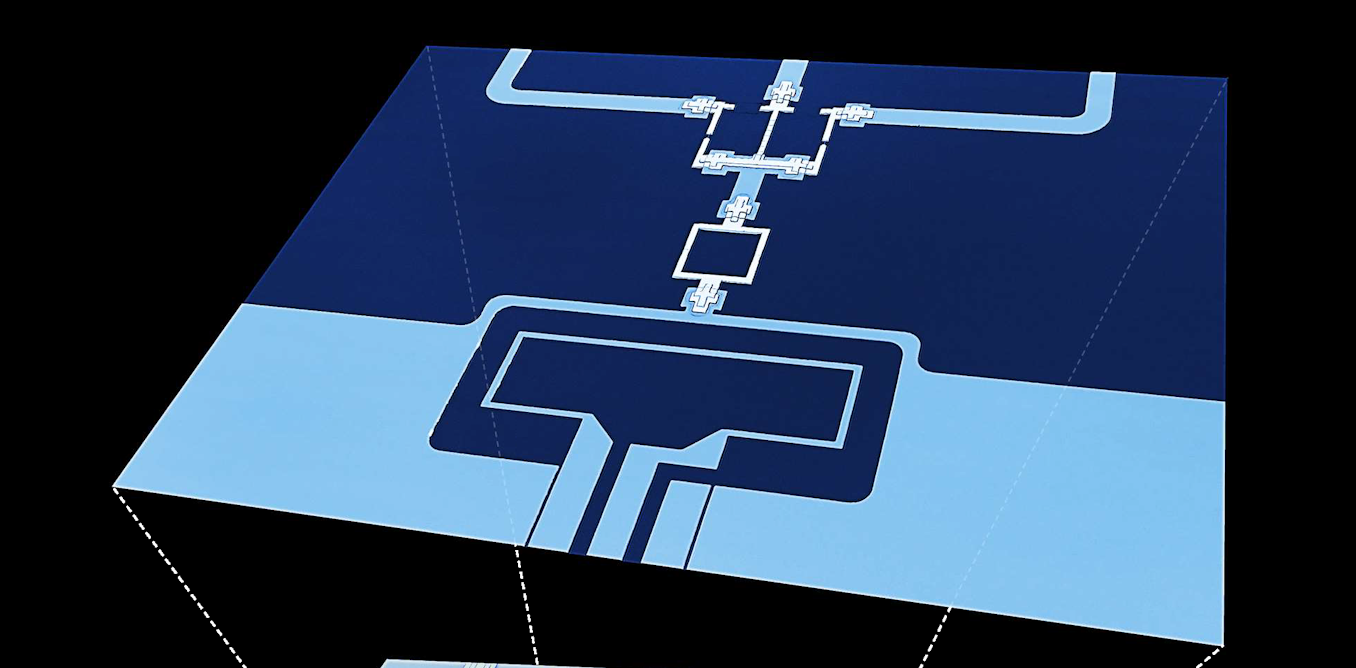Science
Nobel Prize in Physics Honors Breakthroughs in Quantum Technology

The 2025 Nobel Prize in Physics has been awarded to three scientists for their pioneering research on superconducting circuits, which has significantly advanced the field of quantum technology. The laureates, John Martinis, Michel Devoret, and John Clarke, demonstrated that large electrical circuits can exhibit quantum behavior, enabling the development of practical quantum computing applications.
Quantum mechanics explains the unusual behavior of particles at microscopic scales. This foundational principle allows researchers to harness quantum systems for computations that can tackle complex problems in various domains, including chemistry and cryptography. Traditional computers struggle with such tasks due to their limitations, but quantum technologies promise to overcome these barriers.
Groundbreaking Discoveries in Quantum Behavior
The laureates’ pivotal work dates back to the mid-1980s, during which they conducted experiments that revealed superconductors, when cooled to a few degrees above absolute zero, can exhibit quantum behaviors. Their study utilized circuits composed of niobium and lead, which become superconducting materials capable of carrying electricity with no heat loss. This research established the existence of quantized energy levels within these circuits, allowing them to exist in superpositions of multiple states.
Their findings underscored the idea that superconducting circuits could be treated as single quantum particles. This understanding is crucial, as it makes superconducting circuits highly adaptable and reliable for various technological applications.
Superconducting circuits are now pivotal in investigating fundamental quantum physics, simulating physical systems, and developing ultraprecise sensing protocols. For instance, recent advancements by Devoret’s group have led to the creation of a near-ideal microwave amplifier based on superconducting technology. Such amplifiers are essential in communications and scientific instrumentation.
Martinis’s team has utilized these circuits to emulate electron-like particles, a technique vital for studying fundamental physical principles. Meanwhile, researchers have begun employing superconducting circuits to measure magnetic fields with unprecedented sensitivity, enhancing the capabilities of quantum sensors that can monitor biological activity and detect gravitational anomalies.
The Rise of Superconducting Quantum Computers
Superconducting circuits have emerged as a leading platform for quantum computing. The principles of quantization, superposition, and entanglement allow multiple quantum systems to interact, functioning as a cohesive unit. In this context, quantum bits, or qubits, are essential components that can exist in two distinct states.
For effective quantum computing, qubits must be coherent, meaning they maintain their state without interference, controllable to facilitate interactions with other qubits, and scalable to support large numbers of qubits in a system. While various technologies demonstrate potential, such as trapped atoms and ions, superconducting circuits offer a balance of coherence, controllability, and scalability that positions them as a preferred choice for researchers.
The versatility of superconducting circuits allows for the customization of qubit behavior, making them easier to manage than smaller quantum systems, which can be challenging to control. As a result, academic research groups are continually innovating new types of superconducting qubits and refining control techniques to enhance performance and scalability.
The contributions of the Nobel laureates extend beyond their initial research. John Martinis has played a crucial role in leading Google’s quantum processor initiatives, while Michel Devoret remains involved in similar efforts. John Clarke, who is now retired, continued to influence the field with his late-career work on quantum circuits.
The impact of their work resonates through the academic community, with many researchers tracing their academic lineage back to these pioneers. As new generations of scientists build on their foundational discoveries, Martinis, Devoret, and Clarke’s legacy continues to thrive, propelling the field of quantum technology forward.
Eli Levenson-Falk, a physicist involved in superconducting circuits research, emphasizes the transformative potential of these technologies in solving complex problems that traditional computing methods cannot address. As quantum computing progresses, the outcomes of this Nobel Prize-winning research stand to revolutionize various industries and scientific fields, marking a significant milestone in the journey toward practical quantum applications.
-

 World4 months ago
World4 months agoTest Your Knowledge: Take the Herald’s Afternoon Quiz Today
-

 Sports5 months ago
Sports5 months agoPM Faces Backlash from Fans During Netball Trophy Ceremony
-

 Lifestyle5 months ago
Lifestyle5 months agoDunedin Designers Win Top Award at Hokonui Fashion Event
-

 Entertainment5 months ago
Entertainment5 months agoExperience the Excitement of ‘Chief of War’ in Oʻahu
-

 Sports5 months ago
Sports5 months agoLiam Lawson Launches New Era for Racing Bulls with Strong Start
-

 World5 months ago
World5 months agoCoalition Forms to Preserve Māori Wards in Hawke’s Bay
-

 Health5 months ago
Health5 months agoWalking Faster Offers Major Health Benefits for Older Adults
-

 Lifestyle5 months ago
Lifestyle5 months agoDisney Fan Reveals Dress Code Tips for Park Visitors
-

 Top Stories2 weeks ago
Top Stories2 weeks agoTongan Star Eli Katoa Shares Recovery Update After Surgery
-

 Politics5 months ago
Politics5 months agoScots Rally with Humor and Music to Protest Trump’s Visit
-

 Top Stories5 months ago
Top Stories5 months agoUK and India Finalize Trade Deal to Boost Economic Ties
-

 Health2 months ago
Health2 months agoRadio Host Jay-Jay Feeney’s Partner Secures Visa to Stay in NZ









